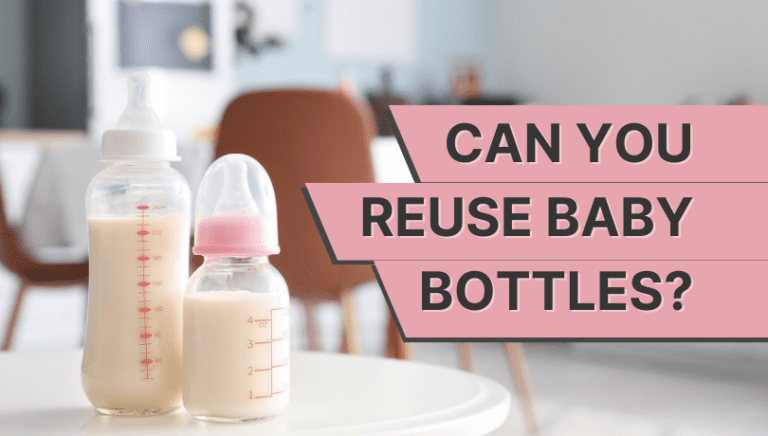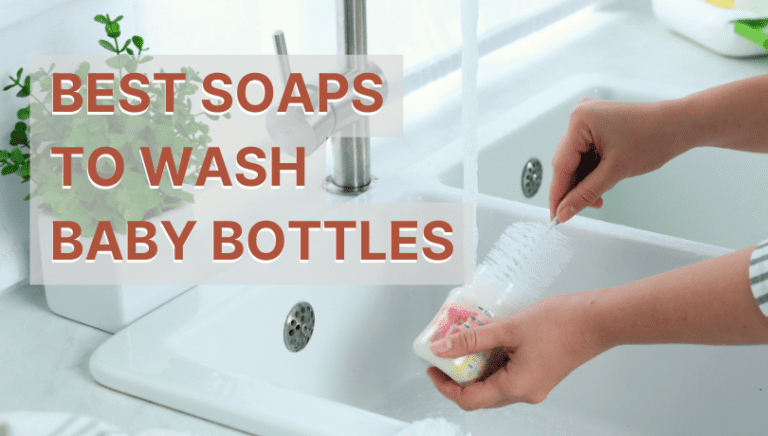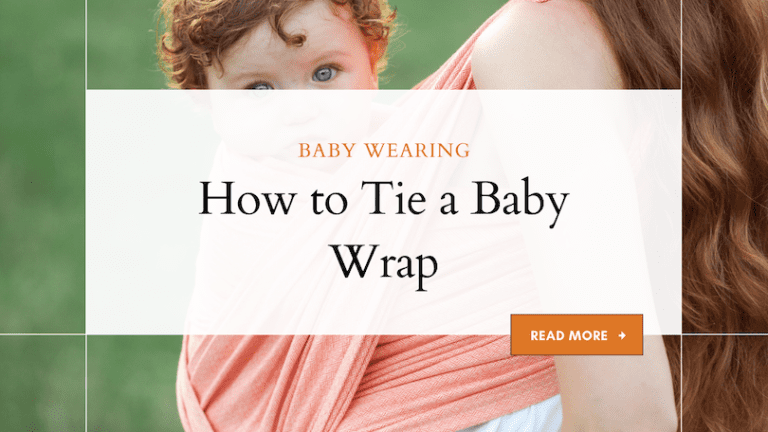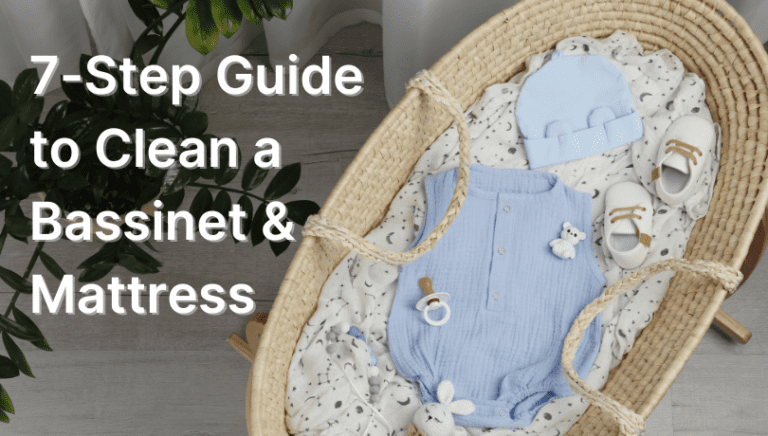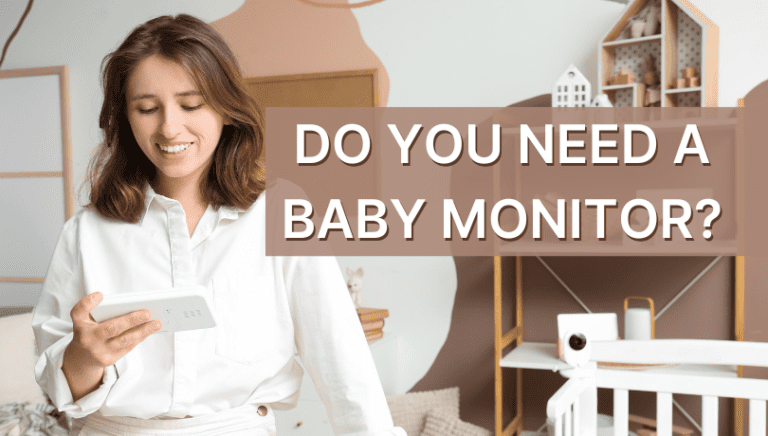Is It Safe To Bed Share With Newborns?
That’s a huge no, dear parents! Sleeping on the same adult bed with your newborn isn’t safe!
The AAP strictly prohibits newborns from sleeping on adult beds. Your baby needs a separate sleeping space, preferably in a crib or a bassinet with a firm mattress.
But what about for a little while? Is it safe to bed share with newborns until they fall asleep, for feeds, or a few cuddles? No, even that can be dangerous. Just know that bed-sharing doesn’t have to be your only option.
So, let’s talk about why parents want to bed-share in some situations, alternatives you can follow, and FAQs on bed-sharing with newborns.
Table of Contents
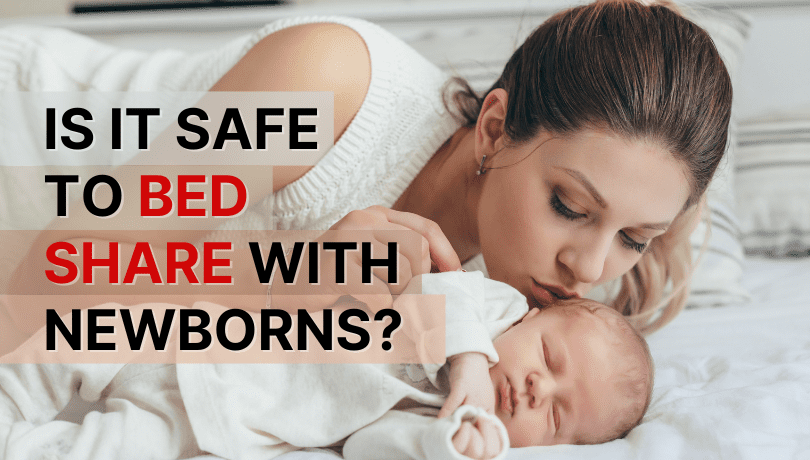
Bed-Sharing and the Danger of SIDS
While we’ve talked a little about why it is extremely dangerous to bed-share with newborns, let’s quickly look at why parents even consider it in the first place:
- Mothers find it easy to feed their baby at night while bed-sharing
- Babies fall asleep quicker next to the comfort of their parents than when sleeping alone
- You establish more skin-to-skin contact with your baby that makes them more comfortable with you
But there are better ways to achieve all this without bed-sharing. Sleeping on the same bed for however short of a time increases the chances of SIDS and as parents, our babies’ safety is above everything else.
Why Does Bed Sharing Increase SIDS?
Babies need to have a firm, flat surface to sleep. Any soft mattress or bedding can trap your infant’s face if they roll overnight, with no help to roll back over again.

This can accidentally block their airway and cause suffocation. Their bones are also developing, so unnecessary stress can cause injuries or worse.
- There are also chances of accidental falls if your baby sleeps on an adult bed.
- Parents could accidentally roll too close to the infant, trapping their bodies or obstructing breathing.
More Reasons to Avoid Bed-Sharing
As a parent, never think of bed-sharing (even if it’s for a short nap) especially if you fall under any of these categories:
- You or your partner smoke or either of you have consumed alcohol during this time
- Your baby doesn’t get enough space and sleeps in between you and your partner
- You’re on prescribed drugs or medication
- You are tired or extremely stressed
It’s always better to let your baby sleep on a separate bed, and even more so if you fall under any of the above conditions.
Bassinets: A Safe Alternative to Bed-Sharing
So, bed-sharing isn’t recommended and has many cons and possible dangers like SIDS through suffocation, trapping, and more. But know that you’ve got alternatives like bassinets to help you out.

When I was nursing my then newborn (especially at night), it helped to have my baby next to me in the bed. But, that didn’t mean I let my baby bed share. I was always careful to transfer her to a bassinet after she’d fallen asleep. That’s one huge advantage of having a bassinet.
Today’s bassinets are portable and lightweight, too. You can even keep them beside your bed. This way, your baby still sleeps in their own bed, but you stay close to comfort, soothe, or nurse your little one.
Further Reading: What is a Bassinet?
FAQs on Bed-Sharing and Bassinets

1. Can You Sleep With A Baby In A Bassinet?
Yes! Bassinets are safe sleeping spaces for babies.
Bassinets are also small, portable tools that can easily fit in your room. You can also find varieties that attach and detach from the bed.
Just know that bassinets have weight limits of 15–20 pounds. Also, always place your baby on their back, and keep the bassinet free from toys and soft bedding.
2. Can You Put a Bassinet on the Bed?
Yes. As long as your baby is sleeping in their own space, putting bassinets on the bed can help you out.
However, you need to follow safety considerations before you place the bassinet on the bed:
1. Inspect your bassinets to verify if they are stable and have sturdy construction.
2. Make sure to look for co-sleeping bassinets specially designed for this purpose. Of course, you can’t use bassinets with wheels or pointed edge bases that might be slippery on the bed.
3. Clear the bed area: do not place any blankets, pillows, or extra bedding that might fall on the baby bassinet
4. As a parent, if you’re someone who tosses around in bed a lot, please be careful that you don’t accidentally knock over or otherwise harm the bassinet and your baby.
My experience says that if you, your husband, or your baby feel uncomfortable due to lack of space, a healthy decision would be to choose the safer option and let your baby sleep in a crib or in a bassinet that’s not attached to the bed.
Kelleigh’s Tip: Give Moses baskets a try if nothing else works out! It has a flat base and is convenient for nighttime feeds.
3. Can I Incline A Bassinet Mattress?
No, inclined sleepers are against AAP guidelines.
My pediatrician also advised me to never incline any baby bed. It can tilt your baby’s face to the wrong position, increasing the chances of suffocation or breathing issues.
Concluding: Is It Safe to Bed Share with Newborns
Bed-sharing is actually dangerous for your newborn. There are safer options to consider, like Moses blankets or bassinets. This way, your baby still sleeps on their own bed while staying close to you.
It is only by understanding the risks and following recommended safety practices that you can create a secure sleep environment that promotes healthy rest for you and your baby! So, keep this in mind and go for room sharing over bed sharing.
Happy parenting.

